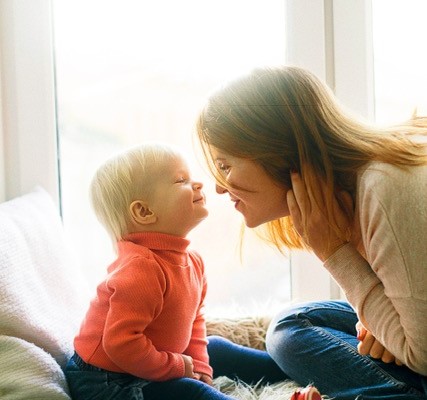“You are the best”, “oh my – what you did was just brilliant”, “you are a genius” and “absolutely fantastic”. Words and sentences like these are spoken to children all over the world on a daily basis. We so much want our children to know that we see them and that they are special to us, and therefore we let them know that they are the most special and brilliant creatures on this planet, all the time.
But this might not be the best way to help our children grow strong, happy and resilient, even though we tend to believe that praise helps our children’s confidence and development. But the fact is that praise is closely connected to how kids view their intelligence. If they are constantly praised for being naturally smart, talented, or gifted, they develop what is called a “fixed” mind-set (their intelligence is fixed and they can’t change it). Like letting your child know that the drawing he just, very quickly, drew was amazing – even though it is only doodles and he didn’t make an effort or took the time to concentrate on any details. The praise will not make any sense to the child’s perception of his own effort. What he will learn is that when he does something without putting any effort into it, he is fantastic and brilliant – and that’s a fixed trait.
The American psychologist Carol Dweek has researched people’s way of thinking and the differences between having a fixed or growth mindset. Also, how a growth mindset can help you realize your children’s full potential. She found that people who are brought up to believe that they are born with a brain capacity which is predetermined, have more difficulty overcoming challenges in life. The reason being that they consider defeat a sign of being incomplete, something that is fixed and cannot be changed. On the contrary, if you are brought up to believe that learning is something that you obtain through experiences in life, and that the process is aimed toward the goal itself, as well as new ideas regardless of their source being welcomed, a sense of fulfillment and self-confidence will present itself. Being too pressured or praised, children may learn to do things for external recognition rather than internal satisfaction, which becomes a default setting for life. It encourages extrinsic goals: needing something outside themselves to make them happy. This may bring success by some people’s standards, but it won’t necessarily bring them that deep sense of internal happiness and well-being many are striving for.
In contrast, children who are told that their intelligence can be developed with effort and education develop a growth mind-set (they can develop their skills because they are working very hard and understand why it is important to do so).
In Denmark we try not to overpraise our children, believing that kids can’t make sense of too many compliments because they can sound empty and hollow. For example, if the boy scribbles the drawing very quickly and gives it to his parent, a Danish parent probably wouldn’t say, “Wow! Great job! You are a real artist!” The parent is more likely to ask about the drawing itself. “Can you tell me about it?” “What were you thinking?” “Is this an elephant?” Or perhaps the parent would just say “thank you” if the boy gave it to his parent as a present, without asking for any compliments.
Focusing on the task, rather than over-complimenting the child, is a very Danish approach. This helps to focus on the work involved, but it also teaches humility. Helping children build on the feeling of being able to master a skill rather than already being a master provides a more solid foundation to stand on and grow from. This promotes inner strength and resilience. If children are always performing in order to obtain something—good grades, awards, or praise from teachers or parents—then they don’t get to develop their inner drive.
It is fundamental for many Danes that children need space and trust to allow them to master things by themselves, to make and solve their own problems. To enforce and stimulate a strong growth mind-set. This creates genuine self-esteem and self-reliance because it eventually comes from the child’s own will.
This is the Danish view on praising.
This article was originally posted on Psychology Today





